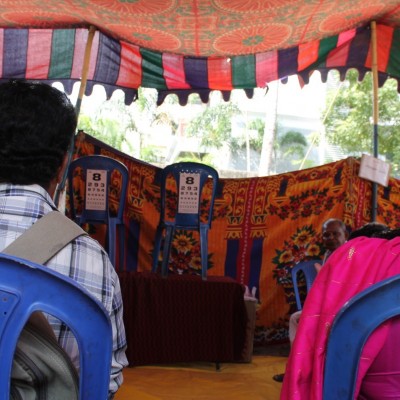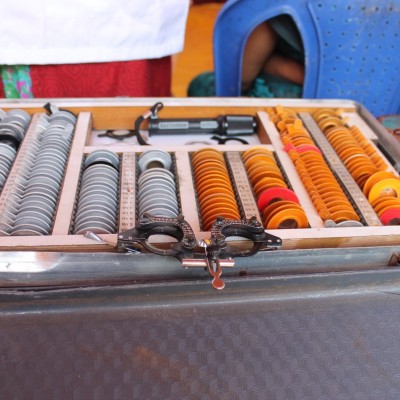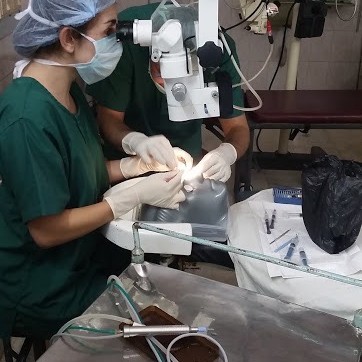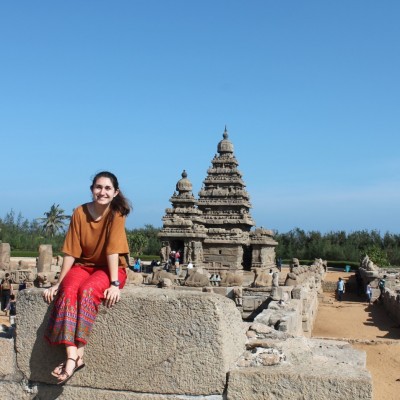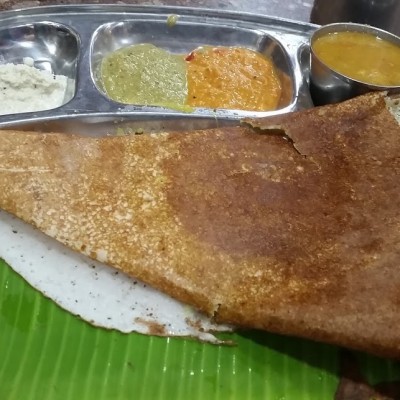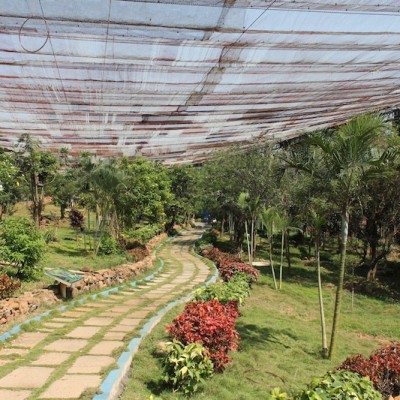The following post is by Alanna Ticali ’16, a Cellular Neuroscience major. Ticali used her AMS grant to volunteer and do research for Unite for Sight in Chennai, India.
During winter break of my senior year, I used a portion of my Alumni Memorial Scholars grant to volunteer and do research for Unite for Sight in Chennai, India. The mission of this organization is to reduce preventable blindness in countries such as India, Honduras, and Ghana by providing free cataract surgeries and optical consultations to patients who would otherwise not be able to afford eye care. As a pre-med student interested in global public health, I was very excited to be able to be involved with and observe the operations of an international medical organization from an insider’s perspective. Unite for Sight works with local doctors and eye care specialists in order to foster sustainable medical intervention in each of the communities that the organization interacts with. It was important to me that Unite for Sight enabled local doctors to help their own communities, instead of repeatedly sending in foreign healthcare workers from the US who had no connection to the communities; creating true change in the health of a community depends on the empowerment of the members of the community, not on the abilities of a few foreign practitioners.
During my 2 weeks in Chennai, I spent most days at eye camps in various regions of the city. At the mobile eye clinics I was in charge of organizing the eyeglass station, handing out glasses, and occasionally taking patients’ blood pressures. Interacting with the patients was a great experience, and I learned how to say a few important phrases in Tamil, the official language of the Indian state of Tamil Nadu (although the local people would often laugh at my shoddy pronunciation). The ophthalmologists, optometrists, and local volunteers with whom I interacted were all very welcoming to me and gladly taught me things about their practice and about their knowledge of the state of public health in India. I also got the chance to observe cataract surgeries funded by Unite for Sight in both urban and rural hospitals. Perhaps one of the most unique experiences I had was performing cataract surgery on a cow’s eye; I now fully appreciate how difficult the procedure is and how amazing all of the surgeons are who perform these surgeries on a daily basis.
Before traveling to Chennai, the team at Unite for Sight had informed me that the local Indian doctors had identified a particular topic that they would like more information on; I agreed with Unite for Sight that it would be best to research a topic that had been pointed out by the local officials with knowledge of their communities. Therefore, my research goal was as follows: to characterize the extent of patients’ understanding of how to use the medications that they had been prescribed (usually antibiotic eye drops). I also sought to find out if patients knew the purpose of their prescribed medication. In order to accomplish this, I interviewed post-operative cataract patients, using a set of survey questions, after they had been given their medication instructions. In general, I found that patients had a good understanding of how to correctly use their medications, both in terms of the timeline of medication usage and the application of medication to the eye. My data was pooled and sent to Unite for Sight, where the US team is keeping a record of the data collected in Chennai for future analysis. My experience utilizing a translator to conduct research was interesting and definitely different from the type of research experience that one would have in the US.
While I was not volunteering at the eye camps, shadowing physicians, or conducting interviews for my research, I was able to go out into the city of Chennai and experience some of the local culture. The other American volunteers and I ate a variety of Southern Indian restaurants (with Dosa and Idli being the staple foods), visited both modern and ancient Hindu temples, went to the zoo, and saw a Bollywood movie. My time in India was very fulfilling and I am grateful that the AMS program gave me the opportunity to experience a different way of life while simultaneously advancing my interests in global healthcare delivery.



